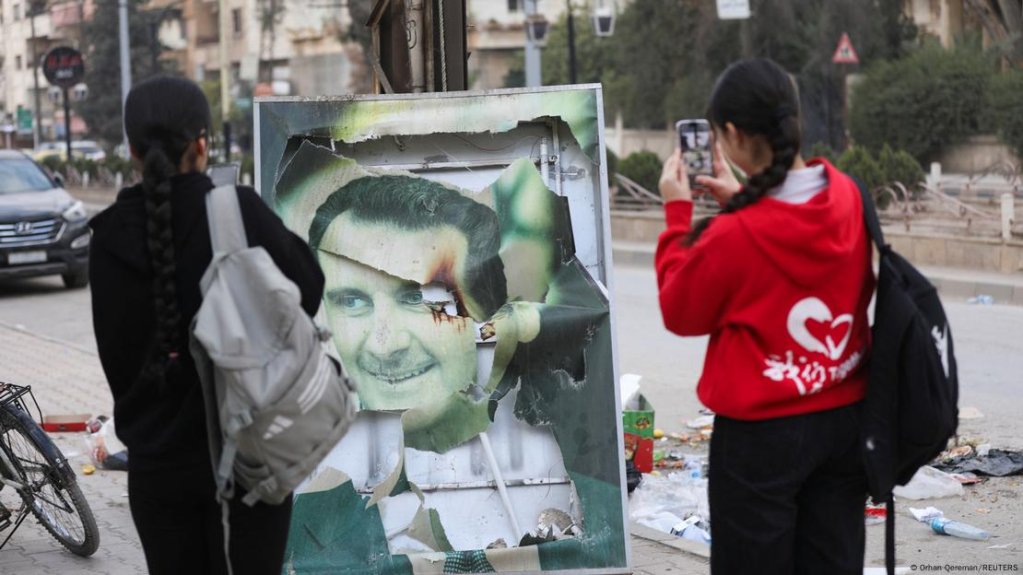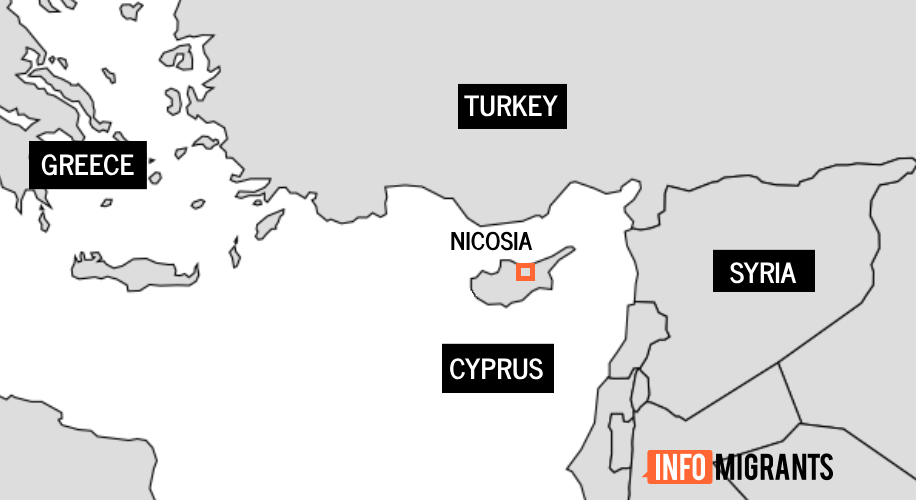Cyprus and Syria have reportedly signed a bilateral agreement to manage irregular migration. Cypriot authorities have alleged that human traffickers are collaborating with local employers to smuggle Syrian workers into Cyprus, and that most Syrians are no longer eligible for asylum in Cyprus. At least two boats have already been turned back.
Syria will take back its nationals who are intercepted as they attempt to enter Cyprus by boat.
On Monday (May 12), Nicholas Ioannides, Cyprus' Deputy Minister for Migration confirmed that two inflatable boats, each carrying 30 Syrians, were already turned back over the last couple of days, reported the European news portal Euronews and the news agency Associated Press (AP).
On May 9 and 10, Cypriot authorities reportedly responded to migrants on board the inflatable boats who had put out a distress call. The Cypriot navy and police patrol boats intercepted the group, who were then escorted back to the Syrian port of Tartus.
Ioannides claims the latest attempts to enter Cyprus from Syria are part of an increase in the numbers of boats departing Syria for the EU-island nation. Previously, boats had set off from Lebanon, and Cyprus already has an agreement governing returns to Lebanon from Cyprus.
Bilateral agreement
Ioannides said that the response was in line with a bilateral agreement agreed by the two countries. More details about the agreement however were not disclosed, reported AP.
In a statement to private TV station Antenna, Ioannides alleged that human traffickers are collaborating with local employers to smuggle Syrian workers into Cyprus, fueling an underground labor market. "These individuals are not coming for asylum but to work illegally, in violation of our laws," he said.
Under Cypriot law, asylum seekers are prohibited from employment during their first nine months of residency.
The government has opted to stop automatically granting asylum to Syrian migrants. Instead, each application will be assessed on a case-by-case basis, under the guidance of European Union and international law.
Ioannides claims that the majority of Syrians applying for asylum in Cyprus would no longer qualify since they belong to the Sunni Muslim group who are no longer being persecuted in Syria following the fall of President Assad's regime.
Withdrawn asylum applications
Since the fall of the Assad regime in December 2024, thousands of Syrian refugees have made their way back home from countries across the European Union. In Cyprus, authorities reported that an average of 40 asylum requests made by Syrians were withdrawn every day

According to the UN Refugee Agency (UNHCR), more than 300,000 Syrian refugees have returned to Syria in the period following the collapse of the Assad regime despite challenges of inadequate housing, jobs, and basic services.
Read AlsoAfter Assad's fall, over 300,000 Syrians return home
A lifeline and a gateway
According to a report from the think tank Mixed Migration Center, Cyprus saw an increasing number of irregular sea arrivals from Lebanon, consisting mainly of Syrian nationals at the beginning of 2024. At its highest, the number of irregular arrivals reportedly peaked at 120-140 per day.
Located approximately 170 kilometers (just over 100 miles) away from the coast of Lebanon at its closest point and about 110 kilometers (roughly 68 miles) from Syria, Cyprus is seen as both a lifeline and a gateway to the European Union for many willing to attempt the perilous sea journey.

In the first three months of 2024, more than 2,000 people arrived on the small island nation, compared to a recorded 78 in the same period the previous year.
President Nikos Christodoulides declared "a state of serious crisis" at the time and called for EU aid to Lebanon to be conditional on stopping migrant departures. Additionally, he pushed for designating parts of Syria as safe zones to allow for the possibility of returns.
For years, Cyprus has consistently hosted the greatest number of asylum seekers relative to its population within the EU. In 2023, Cyprus had the greatest number of asylum applications in the EU per capita, with around 13,000 per one million inhabitants, though this was a significant decrease on previous years.
Transit point amid Middle East tensions
Because of its geographical position, Cyprus is often a base for politicial and military powers and negotiators as well as a point of arrival when conflict, violence and war breaks out in the Middle East.
As violence escalated most recently along the Israel-Lebanon border, Cyprus began preparing for a potential increase in evacuees fleeing other neighboring countries in the region. Several countries are using Cyprus as a stopover for official evacuation efforts. While Israeli nationals can enter Cyprus visa-free, Lebanese citizens require a visa.
Reporters indicate that temporary shelters have already been erected near Larnaca International Airport to accommodate those in transit.
In 2024, the European Commission announced an additional 30 million euros in humanitarian aid to Lebanon, raising the total to over 100 million euros for that year. The money was aimed at supporting millions facing growing food insecurity and displacement.
In 2006, Cyprus already served as an evacuation hub during a period of hostility between Israel and Hezbollah.
